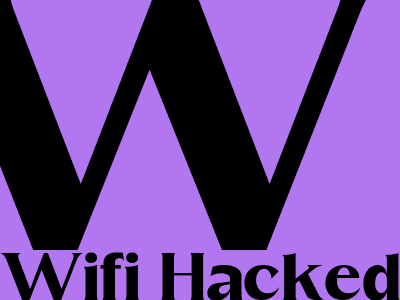Wifi Hacked: Security Risks and Prevention Measures
Introduction
The convenience of wireless networks comes with potential security risks. Wifi hacking poses a significant threat to individuals and organizations, leading to compromised data, financial losses, and identity theft. Understanding the risks and implementing preventive measures are essential for protecting your digital assets.
Risks of Wifi Hacking
Data Interception
Hackers can intercept data transmitted over unsecured wifi networks, such as passwords, credit card numbers, and sensitive business information. This can lead to identity theft, financial fraud, and data breaches.
Malware Attacks
Hackers can use hacked wifi networks to distribute malware, including viruses, trojan horses, and ransomware. These malicious software can damage devices, steal data, or demand ransom payments
Network Access
Unauthorised users with access to your wifi network can connect their devices and potentially have access to your shared files, printers, and other connected devices. This can compromise your privacy and network performance
Prevention Measures
Use Strong Passwords
Create complex and unique passwords for your wifi network. Avoid using easily guessable passwords or default settings. Regularly change your passwords to enhance security.
Enable Encryption
Implement encryption protocols such as WPA2 or WPA3 on your wifi router. Encryption scrambles data transmitted over the network, making it difficult for hackers to intercept.
Disable WPS
Wifi Protected Setup (WPS) is a convenient feature but can be vulnerable to hacking. Disable WPS on your router to eliminate this potential security risk.
Implement a Firewall
A firewall acts as a barrier between your network and the internet, blocking unauthorized access and protecting against malicious traffic. Ensure your router has a built-in firewall and keep it enabled.
Keep Software Updated
Regularly update your router's firmware and software to patch vulnerabilities and enhance security. Software updates often include security fixes and improvements.
Use a Virtual Private Network (VPN)
A VPN encrypts your internet traffic, protecting your data from interception even on public wifi networks. Consider using a VPN when accessing sensitive information or conducting online transactions.
Physical Security
Physically secure your router and access point to prevent unauthorized access. Place them in a secure location and avoid broadcasting your network name (SSID) publicly.
Conclusion
Wifi hacking poses significant security risks, but implementing effective prevention measures can safeguard your data and privacy. By adopting strong passwords, enabling encryption, disabling WPS, using a firewall, keeping software updated, using a VPN, and maintaining physical security, you can significantly reduce the likelihood of a successful wifi hack. Regular monitoring and security audits are also crucial for maintaining a secure wifi network.

Komentar